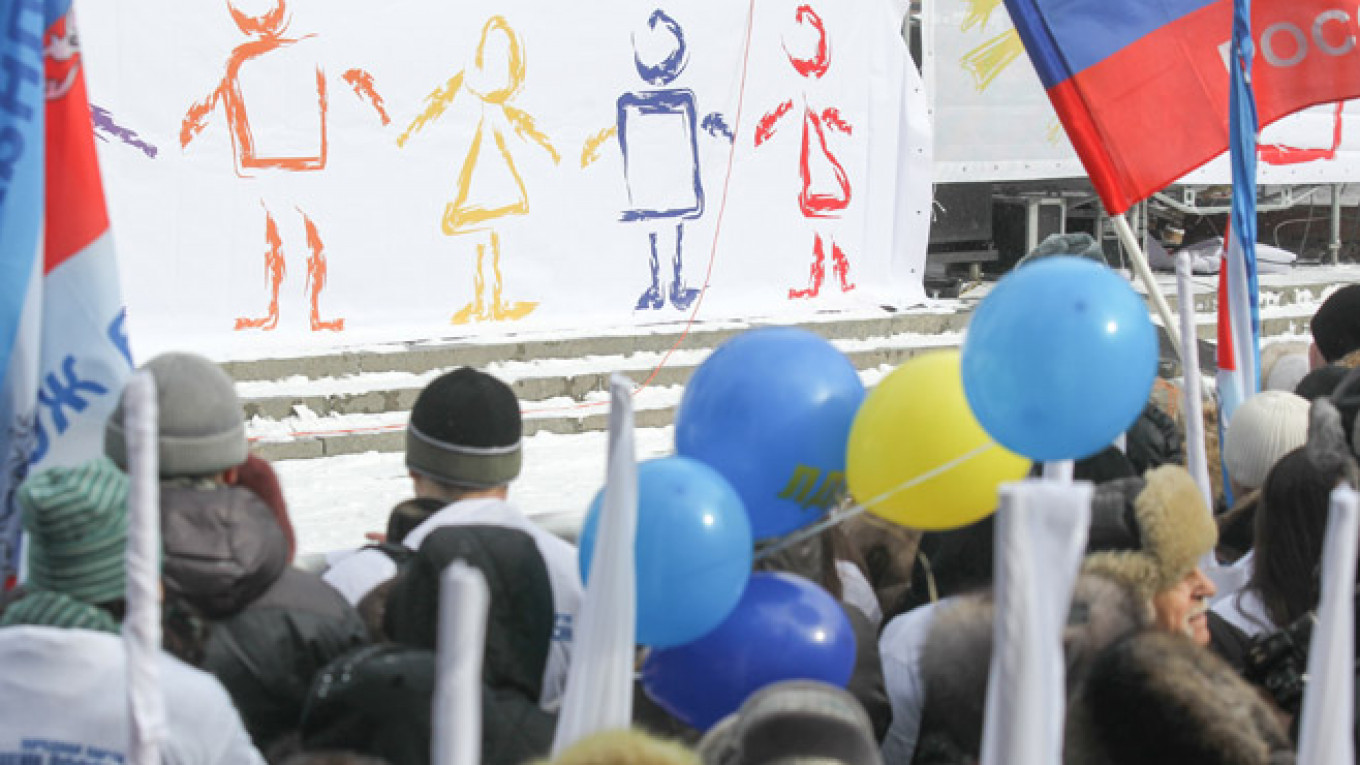Media coverage of the U.S. and EU sanctions against Russia as punishment for its annexation of Crimea and alleged designs on southeastern Ukraine focuses on the impact on business. What started out as pin pricks directed at Kremlin insiders has evolved into prohibitions affecting key economic sectors that promise to do serious damage to both sides. Years of investment in people and industry are now at jeopardy, justifying the media attention.
But the impact of worsening relations on civil society has gone largely unnoticed. Relations in this sphere, even before the current crisis, were shaky. The passage of the U.S. Magnitsky Act in December 2012, which sanctioned various Russian officials tied to the death of whistleblower Sergei Magnitsky, drew an asymmetrical response from the Russians.
This asymmetrical response first became evident in summer 2013, when state relations dipped to new lows over Russia's granting of asylum to Edward Snowden. Relations worsened even further with the Dima Yakovlev Law of September 2013, which ended more than two decades of large-scale adoptions of Russian children by Americans.
While these various attacks and counterattacks may have scored political points in Washington and Moscow respectively, they have significantly harmed the ongoing, positive work of countless NGOs. And, given the worsening relations between the U.S. and Russia, this work is getting harder by the day.
Not surprisingly, at the recent World U.S.-Russia Forum, the cause of U.S. adoptions was represented at the highest level, by the national chair of a key American NGO that has long facilitated the adoption process.
There was also a good number of salt-of-the-earth Americans present at the conference, including the chairwoman of a citizens' initiative that has sent 6,000 Russian students to internships with private entrepreneurs across the U.S. These NGOs have tirelessly worked for decades to build bridges between Russia and the U.S., facilitating exchanges that brought many thousands of ordinary Russians to the U.S. and ordinary Americans to Russia.
All of these dedicated and idealistic people have their eyes open and know the weaknesses of Russian society; none is a dupe of Putin. But what they all have in common now is a very adverse climate back in the U.S. for their activities. Not only has administrative support from U.S. agencies been withdrawn, but the information war has poisoned the atmosphere in which they operate.
But as today's political environment shows few signs of improving, it is important to move past the finger-pointing of Alexander Herzen's "Who Is Guilty" and take up Nikolai Chernyshevsky's challenge of "What Is to Be Done?"
This year, the forum ended its deliberations with a unanimous vote in support of re-creating the premiere platform for detente from the period of 1974 to 1992, the American Committee on East-West Accord. The added value of that body will be to help dampen the information war by challenging the lies coming from all sides involved. It will arrange neutral platforms for genuine debate of the key issues determining state-to-state relations, most immediately the sanctions policy and the expansion of NATO to Ukraine and Georgia.
Such public debates by responsible and authoritative spokesmen for the respective sides have been sorely missing from the start of the present crisis, though they are a precondition for informed and high-quality policymaking. And without more nuanced policymaking, the low-level but deeply effective work of NGOs on both sides could easily be just the latest casualty of the sanction war.
Gilbert Doctorow is the founder of the European chapter of the Committee on East-West Accord.
A Message from The Moscow Times:
Dear readers,
We are facing unprecedented challenges. Russia's Prosecutor General's Office has designated The Moscow Times as an "undesirable" organization, criminalizing our work and putting our staff at risk of prosecution. This follows our earlier unjust labeling as a "foreign agent."
These actions are direct attempts to silence independent journalism in Russia. The authorities claim our work "discredits the decisions of the Russian leadership." We see things differently: we strive to provide accurate, unbiased reporting on Russia.
We, the journalists of The Moscow Times, refuse to be silenced. But to continue our work, we need your help.
Your support, no matter how small, makes a world of difference. If you can, please support us monthly starting from just $2. It's quick to set up, and every contribution makes a significant impact.
By supporting The Moscow Times, you're defending open, independent journalism in the face of repression. Thank you for standing with us.
Remind me later.






